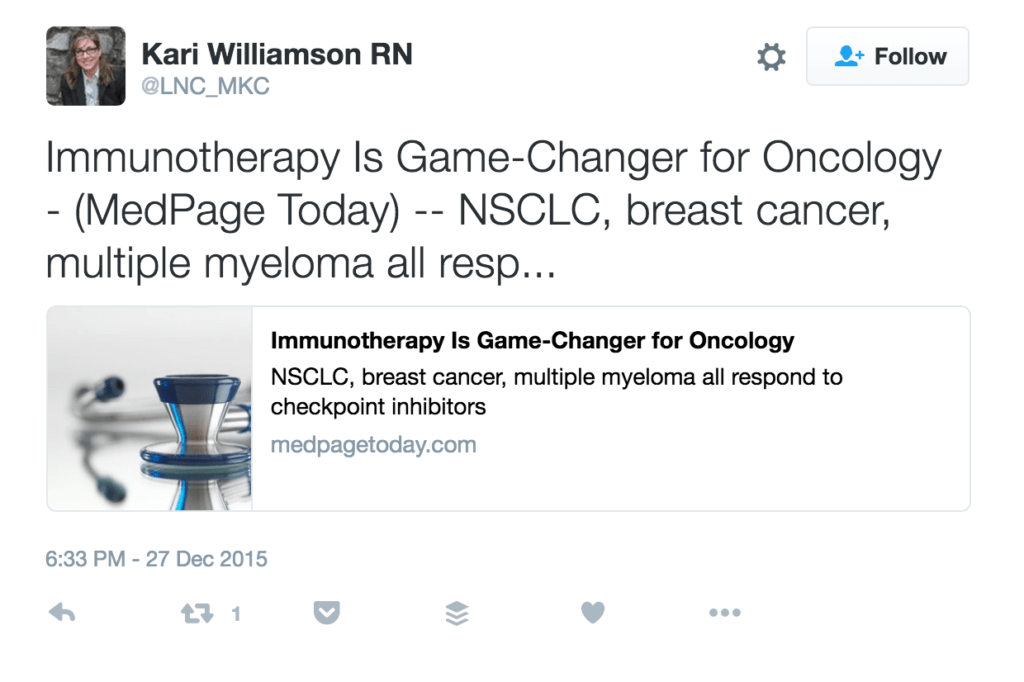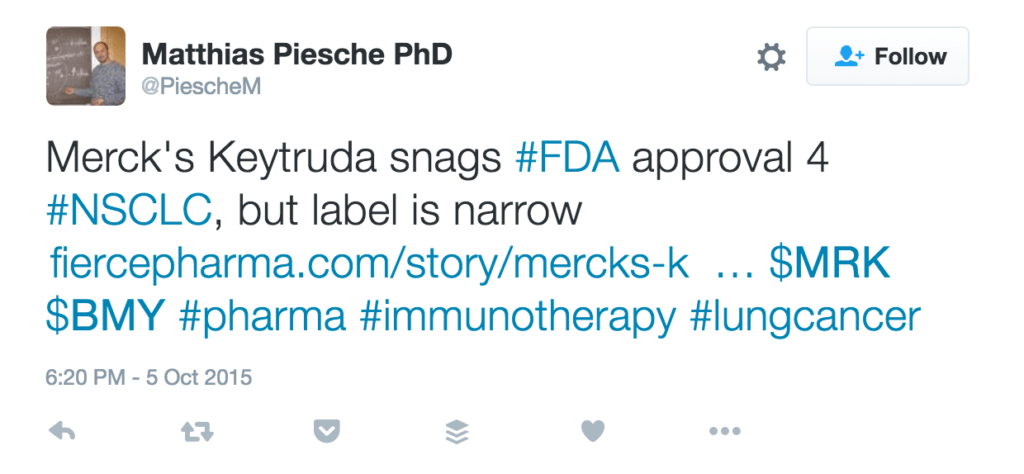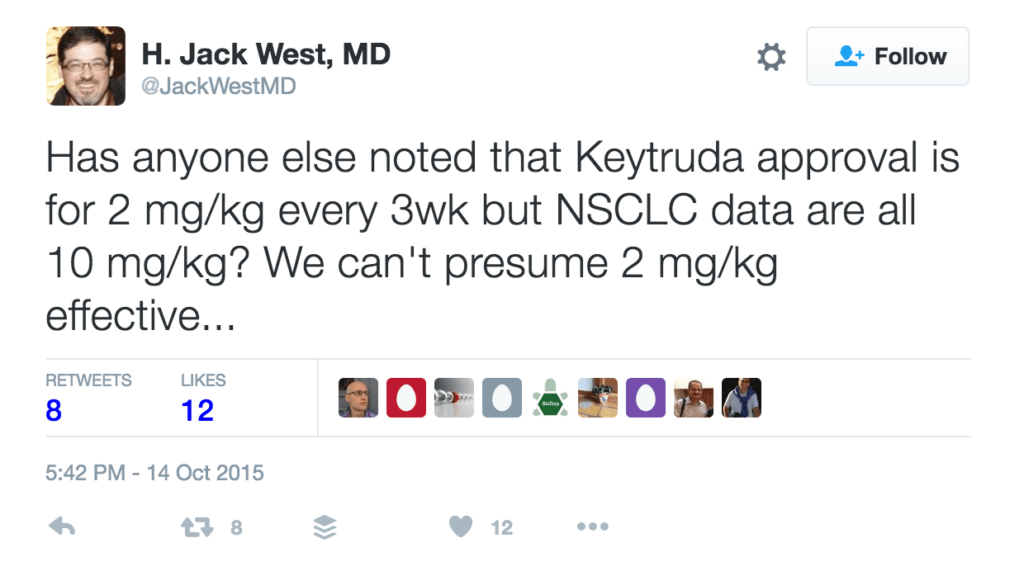Given the hype around breakthrough immunotherapeutic approaches in the oncology space, it was not surprising that our recent study into US healthcare professionals’ online conversations about non-small cell lung cancer (NSCLC) was dominated by one topic: PD-1 and PD-L1 inhibitors.
When we looked at conversations between healthcare professionals (HCPs) relating to NSCLC, we identified an unusually high volume of product mentions – in fact, over a third of mentions within the study referenced a brand or compound in some way. A quick look at the data showed that mentions of nivolumab (PD-1) and pembrolizumab (PD-L1) far outstripped products in other classes, between them accounting for more than half of all product-related mentions in the study.
Although these drugs weren’t the only topic discussed in the study, they were certainly the dominant conversational theme. This makes sense, when you consider what they potentially offer those treating NSCLC: a ray of light in what can feel like a very dark landscape. The US National Cancer Institute identifies lung cancer as the leading cause of cancer death in the US (with over 158,000 deaths in 2015), and NSCLC as the most common form of lung cancer. The NCI SEER database estimates a 49% 5-year survival rate for US patients diagnosed with early stage NSCLC. Against this backdrop, last year’s FDA decision to grant both nivolumab and pembrolizumab ‘breakthrough’ status for NSCLC is more than a technical designation; it represents hope of breakthrough for thousands of patients and families worldwide – and for those HCPs treating them.
It’s fair to say that the level of conversation around both nivolumab and pembrolizumab has been buoyed by external factors: 31% of pembrolizumab mentions in the study period related to FDA approvals granted in autumn 2015. May 2015 saw a huge spike in conversation about nivolumab extending survival for NSCLC patients, in response to the presentation of CHECKMATE 057 phase III results to a delighted crowd at the American Society of Clinical Oncology (ASCO) annual meeting 2015.
But these ‘conversation starters’ aside, online there is a genuine, underlying sense enthusiasm amongst HCPs who see the potential for PD-1 inhibitors to change the landscape of cancer immunotherapy, and particularly the implications for treating non-small cell lung cancer:
“The most exciting moment for me, personally, in the development of anti-PD–1 drugs was the realization that lung cancer could respond to this form of immunotherapy.” – Suzanne L. Topalian, Healio.com Perspectives on pembrolizumab data

So, have HCPs expressed concerns about these new therapies online? After the FDA’s approval of pembrolizumab, some US HCPs expressed frustration at the limitations of the approval itself, calling out the PD-L1 expression requirement:

HCPs have also questioned some of the practicalities around calculating dosage and relative efficacy:

However, in the year that ASCO named cancer immunotherapy their ‘advance of the year’, the overwhelming feeling from the HCP online community is one of optimism. We look forward to reviewing how the FDA’s recent announcements around atezolizumab have affected HCP online conversation in a future article. For now, suffice to say this is an exciting time for oncology, as we begin to understand and explore the potential of immunotherapy to treat the most aggressive cancers.
___

